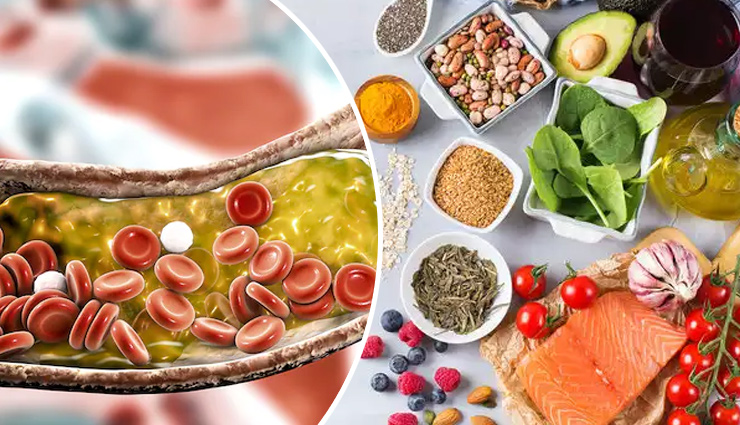Managing cholesterol levels is important for heart health, and the monsoon season can pose unique challenges to maintaining a balanced diet and healthy lifestyle. The rainy season often leads to changes in eating habits and physical activity, which can impact cholesterol levels. This article highlights five superfoods that can help manage LDL (bad cholesterol) during the monsoon, supporting cardiovascular health and overall well-being.
1. Oats
Why Oats Are Effective
Oats are a fantastic food choice for lowering LDL cholesterol. They are rich in a type of soluble fiber known as beta-glucan. This fiber forms a gel-like substance in the digestive system, which binds to cholesterol and prevents its absorption into the bloodstream. Consuming a bowl of oatmeal each day can help manage cholesterol levels and support heart health.
How to Include Oats in Your Diet
Incorporate oats into your diet by having them as a warm breakfast cereal, adding them to smoothies, or using them as an ingredient in baking. Oats are versatile and easy to prepare, making them a convenient option for the monsoon season.
2. Nuts
The Benefits of Nuts
Nuts, particularly almonds and walnuts, are packed with nutrients that contribute to heart health. They are rich in fiber, plant sterols, and healthy fats. Fiber helps reduce LDL cholesterol, while plant sterols block cholesterol absorption in the digestive tract. Healthy fats from nuts also support heart health by improving cholesterol ratios.
How to Add Nuts to Your Meals
Enjoy a handful of nuts as a snack, sprinkle them on salads, or use them in baking. Nuts can be a great addition to your diet, especially during the monsoon when fresh produce may be less accessible.
3. Fatty Fish
Why Fatty Fish Are Beneficial
Fatty fish such as sardines, salmon, and mackerel are excellent sources of omega-3 fatty acids. These healthy fats have been shown to lower LDL cholesterol and triglycerides while raising HDL (good cholesterol). Omega-3 fatty acids also help reduce inflammation and support heart health.
How to Include Fatty Fish in Your Diet
Aim to eat fatty fish at least twice a week. You can grill, bake, or steam fish for a healthy meal option. Incorporating these fish into your diet can be particularly beneficial during the monsoon when you may need hearty and nutritious meals.
4. Olive Oil
The Heart Health Benefits of Olive Oil
Olive oil is rich in monounsaturated fats, which help lower LDL cholesterol levels and increase HDL cholesterol. It also contains antioxidants that protect your cardiovascular system from damage. Using olive oil in your cooking can be an effective way to manage cholesterol levels.
How to Use Olive Oil in Your Diet
Replace saturated fats like butter with olive oil for cooking or dress your salads with it. Olive oil can be used in a variety of dishes, making it a versatile and heart-healthy option for the monsoon season.
5. Beans
Why Beans Are Good for Cholesterol Control
Beans are another excellent superfood for managing LDL cholesterol. They are high in soluble fiber, which binds to cholesterol and helps remove it from your body. Beans also contain plant sterols and antioxidants that further support heart health.
How to Add Beans to Your Diet
Beans can be included in your diet in many ways. Try adding them to soups, salads, or stews, or enjoy them as a side dish. Beans are a nutritious and filling option, especially beneficial during the monsoon when hearty meals are often preferred.
Conclusion
Maintaining healthy cholesterol levels during the monsoon season can be supported by including specific superfoods in your diet. Foods like oats, nuts, fatty fish, olive oil, and beans offer numerous benefits for lowering LDL cholesterol and promoting cardiovascular health. By making these nutrient-rich foods a part of your diet, you can better manage your cholesterol levels and support overall heart health.
Always consult with your doctor or a healthcare professional before making significant dietary changes for cholesterol management. They can provide personalized guidance based on your medical history and current health status.


